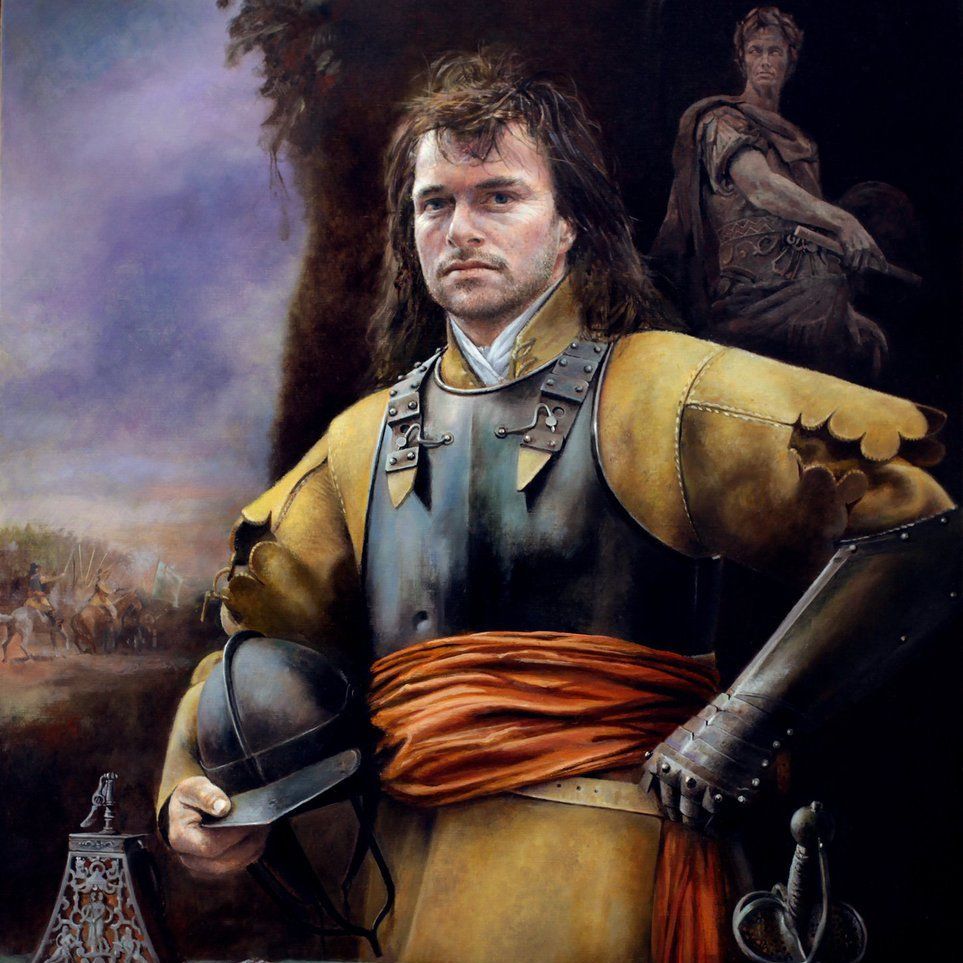Introducing
Francis Hacker
Francis Hacker
"My desire hath been ever for the welfare of my Country, and that civil power might stand."
In life, Francis Hacker was an extraordinary figure.
A respected and talented military commander, and a loving husband and father, he was a man of immense faith, who believed he had a duty to uphold the teachings of the Bible – and hold to account those who he believed supported popery and false teachings. This included Charles the First of England and some of the most trusted members of the King’s inner circle, men like Archbishop Laud.
During the three civil wars that scarred England for so long, Francis was a staunch supporter of Oliver Cromwell, who, from 1643, was a rising army officer, a man noted for his strategic brilliance and the firm disciplinary hand he exercised on Parliament’s Eastern Association army. He would remain a firm ally and friend of Cromwell's until the Lord Protector’s untimely death on Friday the third day of September, 1658.
Francis was the only member of his family to support the Parliamentarian faction; his brothers, Thomas and Rowland, were officers in the King’s army, waging war against the Leicestershire and Nottinghamshire Militias from the Royalist garrisons of Trent Bridge, Ashby Castle and Belvoir Castle. His father, John, was also a Royalist; it is not known what political views Anne, his sister, held.
He married Isabel (nee Brunts) at Saint Peter’s Church in East Bridgford on the fifth day of July 1632. At the time of their wedding, the couple were incredibly young: Francis was just fourteen years of age; Isabel was twenty. They were to be together for twenty-eight years.
Six children would be the product of this largely happy union: Francis (born 26 May 1633); Anne (born: 25 March 1634), Isable (born: 24 January 1638); Elizabeth (christened: 9 October 1637); Mary (christened: 8 March 1639); and Barbara (christened: 18 July 1641).
But, like so many prominent people of the time, few records exist today about Francis’s life.
Even though he was to become a prominent figure in Parliament’s military machine, and one of the men who signed the decree condemning Charles the First to death, Francis is one of the many forgotten men of the conflict.
My novels, starting with Rebellion and continuing with Redemption, attempt to fill the void, through accurate accounts of the time and, where there are gaps, my own embellishments and fantasy! But even though some of what I write is invention, please be assured that I have stayed true to a historical timeline, real events and, wherever possible, used documents and eye witness accounts to tell Francis's remarkable story.
As to the precise detail, I will leave you, the reader, to discover the ultimate truth about Francis, should you wish to go on such a journey.
In truth, the seventeenth century was an incredible chapter in
British and English history. And Francis Hacker certainly played his part in shaping the
period. He dearly loved his wife, children and God – and did his utmost to
serve the cause he believed in.
